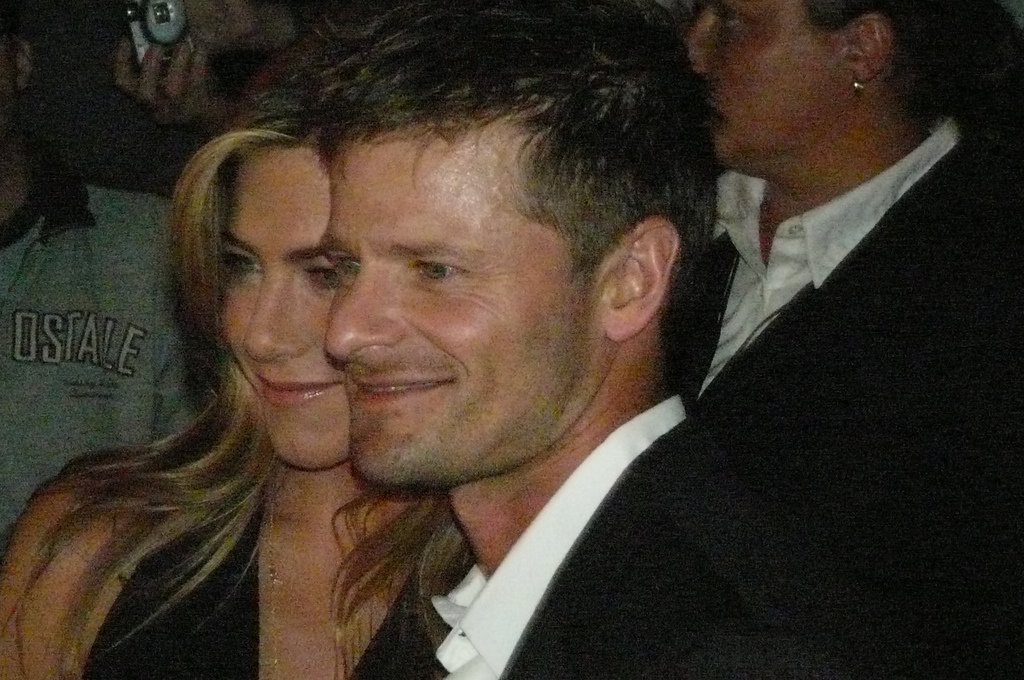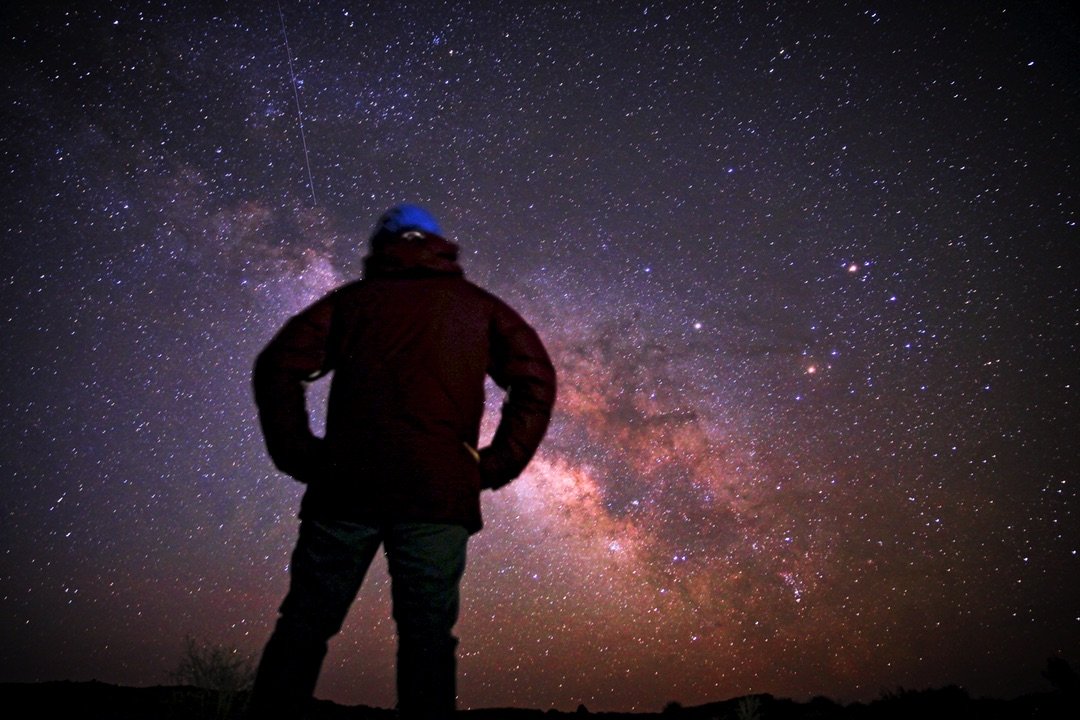"For in six days the Lord made heaven and earth, the sea, and all that is in them, and rested on the seventh day."
- Exodus 20:11 -
A week ago, I read an article by @gavvet.
He raised the following very interesting and worthwhile question:
I think that question, as well as the other questions raised in @gavvet's article, are well worth bringing up, thinking deeply about, and discussing.
I've Re-Steemed his article in the interest of fostering a good Steemit dialog. I ask you to please pause and read @gavvet's article now, because the rest of my article is intended to be interactive with what he has said so far.

Created in mere days?
Photo courtesy of ayoub wardin and http://pixabay.com
@gavvet makes the following point:
"The age of enlightenment, modern science and all of its discoveries have vastly enriched or knowledge of the universe, its systems and processes and life in all of its diversity."
True enough. We enjoy a remarkable standard of living and a much expanded comprehension of the nature and the vast scope of the universe today than ever before. Most of these benefits can be attributed to advances in science and in the technologies which we have developed as a result of what we have learned.
I am personally grateful for the phenomenal advances in astronomical instrumentation that have occurred in my own lifetime. For example, ever since my childhood devouring of all the science fiction I could get my hands on, I have "known" that planets revolve around other star systems. However, it has only been in the last twenty years that space-borne telescopes and greatly improved earthbound observatories have been capable of actual observations verifying that "fact." Thanks to the Kepler Space Telescope and supporting research, we now have data confirming the existence of thousands of extra-solar planets.
Within the past year,
scientists have announced that the known universe contains, not the 100 to 500 billion galaxies previously estimated, but an order of magnitude more - now known to be between one and two trillion galaxies. These are advances in scientific knowledge that I can gladly applaud and deeply appreciate.

Created in mere days?
Photo courtesy of dpatdfci and http://pixabay.com
But, as @gavvet points out, we are sometimes gullible.
"We are so used to nativity scenes and other narratives that this clouds or perspective of what the scriptures actually say, even when we read them for ourselves."
His example of mistaken assumptions about the "three wise men and the baby Jesus" is an excellent illustration that ought to give us pause. Immersed in our culture, we all too often accept "what everyone knows" as truth without having personally examined and verified it to our own satisfaction.
Created in mere days?
Photo courtesy of Greg Rakozy and http://unsplash.com
I would like to echo and expand upon @gavvet's thesis.
Get more personal. Ask yourself, why do you believe what you believe?
It isn't just a medieval Mother Church that may have shackled your mind, my friend. In our modern day, we suffer just as greatly from a scientific priesthood as ever there was an ecclesiastical cabal seeking to dictate our beliefs.
Fool me once, shame on you. Fool me twice, shame on me. If you're going to bother to free your mind from the shackles of religious tradition, you'd better damn well do the same with political correctness, the military-medical-pharmaceutical-scientific-academic-industrial complex, and the media priesthood.
Face it,
you are surrounded by and immersed in a raging sea of False News. You are bombarded with it every day, and from every side. The falsehoods may not always be deliberate and malevolent, there may not always be an agenda, but no matter where deception and misdirection comes from, you'd better learn to recognize and filter it out somehow. Don't just swallow the lies and, when its far too late, discover that you've been "hooked."
Now it's my turn to provide an example.
Science is not God, although some insist on treating it as such. It is "a god" insofar as we allow ourselves to grant science a higher status then it deserves and permit it to become an unquestioned authority in our lives. Like any other lowercase 'g' "god," science is fallible. There is a definite scientific priesthood, living in the halls of academia, peering over their spectacles at us plebes, ridiculing anyone who questions their dogma.
In the realm of neuroscience,
there has been an accepted theory of how the brain recognizes faces. It was presumed, taught, and widely accepted that a unique face — for example, Jennifer Aniston — would cast an image on your retina, trigger a series of impulses along your optic nerve, go through a black-box process in your brain, and finally trigger a single neuron cell causing your brain to "light up" and recognize Jennifer Aniston. That cell was the "Jennifer Aniston" cell in your brain.

Jennifer Aniston
Photo courtesy of Chris Harte and http://flickr.com
But "scientific knowledge" is a constantly moving and changing target. There are alternate views based on actual observations and changing theories that continually replace "common knowledge" as the years pass. The entire history of science demonstrates this to be true.
Facial recognition theory is no exception.
Recent research has conclusively shown that the prevailing theory is simply wrong. There is not a "Jennifer Aniston" cell that lights up in your brain. In fact, there are a little more than 200 cells in your brain that, depending on the pattern in which they are firing at the moment, cause you to recognize Jennifer Aniston. Those same cells, firing in a different pattern, will cause you to recognize your spouse, or your Uncle Bob. You can read more about this in my recent article:
My point is this:
The premise raised by @gavvet is absolutely true. We are all too prone to accept "what we know to be true" simply because we have been immersed in it, bombarded with it, grown up with it, heard it on TV or in school. However, this problem is not limited to the church, the bible, and religion.
You must think critically about everything.
There are priesthoods, traditions, and sacred cows in the world of science just as much, if not more so, than in the world of religion. While it's a good thing not to change your opinions and beliefs on a whim, flip-flopping with every new theory that comes along, it is completely unnecessary to discard a belief unless you have a really sound reason to do so.
I consider this just an introductory post.
In future posts, I hope to examine some more reasons to be thoughtfully cautious about allowing "scientific knowledge" to be dismissive about your religious beliefs.
For example, the notion that the earth is extremely old is primarily a theoretical construct with questionable evidence. We do not have historical records that go back to the presumed extent of the earth's age. There are some very interesting astronomical observations that throw current scientific theories about the age of the earth and the universe into question. I hope to present one in my next article in this series.
Stay tuned!
FIN
LOOK! Check out our amazing product:
>>CLICK HERE!<<
You are why I'm here on Steemit!
I have very eclectic interests and hope, over time, to write about them all.
⬇️To Check Out @creatr's World⬇️CLICK Each Image Below⬇️

|

|

|

